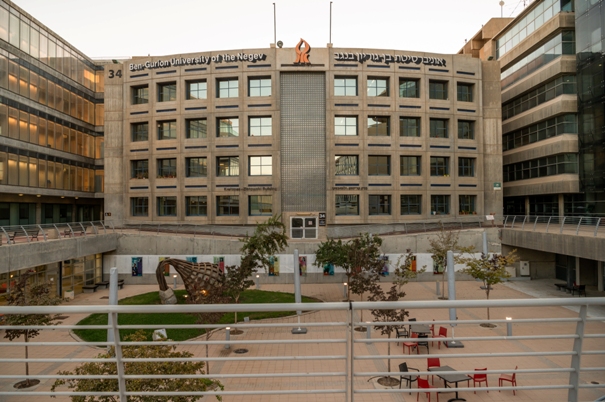- This April, Aravali Kitchen at Courtyard by Marriott Aravali Resort extends an invitation to Taste the Himachali Dham Special Dinner
- Aerospace Exchange Bolsters Offerings and Services to Streamline Civil and Military Aviation Part Procurement
- Sommet Education Unveils New Step in Strategic Digital Expansion with Online Executive Certificates
- LAUNCH OF THE BOOK - In The Woods - Oruku by Roma Dessai
- Neue Auctions' April 27th, Art in Bloom Auction Features Contemporary Art Glass, Paintings, more
- Viaante Recognized Among Top 20 IT Services Companies by DesignRush
- Times Prime's New Billboard at Mumbai Sea Link Proves Too Small to Contain Its Massive Membership Benefits
- Codilar To Showcase Award-Winning Digital Commerce Solutions At Seamless Middle East 2024
- 2024 Thailand Tourism Report Unveiled by Tourism.co.th
- This Earth Day, Fairmont Jaipur stands at the forefront of sustainable hospitality.
- Yemeni Man, 59, Receives Life-Saving Living Donor Liver Transplantation
- 8th Global Fashion and Design Week Announced for 2nd to 4th May at Noida Film City
- Manforce Condoms unveils new campaign #votingvirgin, urges first-time voters to actively cast votes
- Personal Touch Skincare Introducing Intisafe Intimate Cleansing Wipes for Gentle and Effective Hygiene
- Hollywood Weekly Magazine features Gernado G. Abrams in its April issue.
 Mail to a Friend Mail to a Friend |
|
     |
Genetic Link Between Aging Brain and Brain Cancers found by Israeli Scientists

New Delhi, July 13th, 2021: Israeli university- Ben-Gurion University of Negev (BGU) scientists have found that a gene activated in glioblastoma, a type of brain cancer, is also partly responsible for aging in our brain.
Their findings were published in the peer-reviewed journal Aging late last week.
"Studying cancer teaches us about aging and vice versa," says lead researcher Dr. Barak Rotblat of the Department of Life Sciences in the Faculty of Natural Sciences and the National Institute for Biotechnology in the Negev (NIBN). Rotblat'sresearch has focused on a new class of genes coding for long noncoding RNA. Classically, gene products are RNA which code for proteins. However, while there are 20,000 ?classic" protein coding genes, we now know that there are at least 20,000 genes whose products are long noncoding RNA.
?For the past few years, we have been studying one of these genes, TP73-AS1, and found that it is highly active in both pediatric (medulloblastoma) and adult (glioblastoma) brain cancers. Importantly, not only is this gene highly active in brain cancer, but it also contributes to the aggressiveness of the disease. In glioblastoma, high levels of TP73-AS1 in tumor cells provide protection against chemotherapy," explains Dr. Rotblat.
Using computational and cell biology techniques, such as CRISPR, the Rotblat lab identified a protein increasing TP73-AS1 gene activity in response to chemotherapy and realized that this protein, known as YY1, is also known to activate many genes in the aging brain. Interestingly, aging and glioblastoma are also known to be linked, because glioblastoma is more aggressive in older people. However, the genes linking the aging brain to glioblastoma were not known.
?Once we found that YY1 increases the activity of TP73-AS1, we asked if, like YY1, TP73-AS1 is also active in the aging brain and found that this is indeed the case. Now, we are excited by the prospect that by studying TP73-AS1 and the molecular pathways it interacts with, we can learn about cancer and aging in the brain," Dr. Rotblat says about directions for future studies.
Additional researchers include Gal Mazor, Dmitri Smirnov, Hila Ben David, and Dr. Debra Toiber of BGU's Department of Life Sciences, and Ekaterina Khrameeva of the Center of Life Sciences, Skolkovo Institute of Science and Technology. Dr. Toiber is also a member of BGU's Zlotowski Center for Neuroscience.
The research was supported by the Israel Science Foundation (grant No. 1436/19), by the Israeli Cancer Association (grant #20180012), the NIBN, The David and Inez Myers foundation and by the Ministry of Science and Technology.
About Ben-Gurion University of the Negev
Ben-Gurion University of the Negev (BGU) is the fastest growing research university in Israel. With 20,000 students, 4,000 staff and faculty members, and three campuses in Beer-Sheva, SdeBoker and Eilat, BGU is an agent of change, fulfilling the vision of David Ben-Gurion, Israel?s legendary first prime minister, who envisaged the future of Israel emerging from the Negev. The University is at the heart of Beer-Sheva's transformation into an innovation district, where leading multinational corporations and start-ups eagerly leverage BGU?s expertise to generate innovative R&D.
BGU effects change, locally, regionally and internationally. With faculties in Engineering Sciences; Health Sciences; Natural Sciences; Humanities and Social Sciences; Business and Management; and Desert Studies, the University is a recognized national and global leader in many fields, actively encouraging multi-disciplinary collaborations with government and industry, and nurturing entrepreneurship and innovation in all its forms.
Company :-Good Relations India
User :- Uday Singh
Email :-uday.singh@gri.co.in
Mobile:- 9582180149










